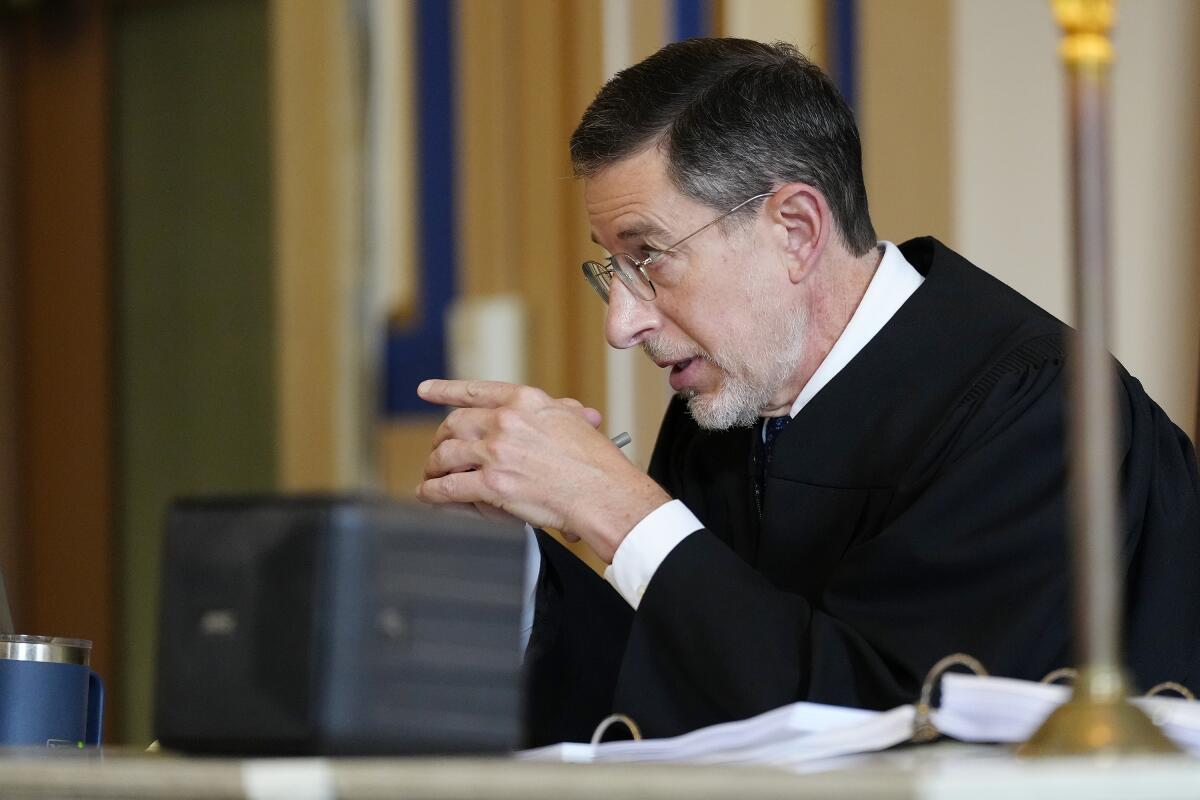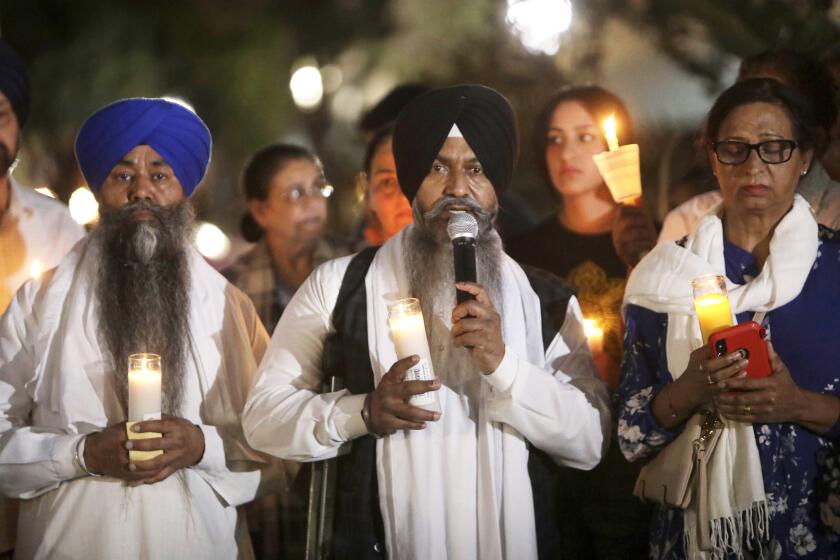Judge blocks restrictive Ohio abortion law as suit proceeds

- Share via
CINCINNATI — A judge has permanently blocked a ban on virtually all abortions in Ohio as a state constitutional challenge proceeds.
Hamilton County Judge Christian Jenkins took the action from the bench Friday after a daylong hearing.
It is “simply wrong” to argue that a “right does not exist because it is not specifically listed in the [U.S.] Constitution,” Jenkins said.
The 2019 so-called “heartbeat” abortion ban briefly went into effect after the U.S. Supreme Court overturned Roe vs. Wade in June, but it was later put on temporary hold. Jenkins’ decision means abortions through 20 weeks’ gestation may continue in Ohio for now.
Abortion providers who have sued will try to prove through their litigation that the law violates protections contained in Ohio’s Constitution.
Kathy and Katrina were robbed at gunpoint by Jesus Manuel Salgado in 2005. They are horrified that he’s now accused of kidnapping and killing a Merced family.
A group of abortion clinics represented by the ACLU of Ohio has challenged the state law banning most abortions after fetal cardiac activity is detected on grounds it violates provisions of the state constitution guaranteeing individual liberty and equal protection. It also says the law is unconstitutionally vague.
Jenkins previously decided to pause the law through Oct. 12, after it took effect following the overturning of Roe vs. Wade.
The testimony he heard Friday varied little from existing societal and political arguments for and against abortion. Lawyers for abortion clinics presented witnesses who emphasized that abortion is safe, necessary healthcare and that pregnant Ohioans seeking the procedure were devastated when the law was briefly imposed after Roe vs. Wade was overturned.
Dr. Steven Ralston, a maternal and fetal medicine doctor at the University of Maryland, said limited exceptions included in Ohio’s cardiac-activity law are vague and worrisome to physicians, who face losing their medical licenses or felony charges for misinterpretations.
He testified to observing more danger to patients in pregnancy than in abortion.
“I’ve seen many, many more patients end up in intensive care units after having a baby compared to women who have had an abortion,” Ralston said in video testimony. “In fact, I can’t even remember a time that I’ve seen a woman end up in a care unit after an abortion.”
The state’s attorneys brought witness Dr. Dennis Sullivan, a bioethics expert from Cedarville University, a private Baptist institution, who testified that human life begins at conception and that it is “scientifically not open to debate.”
He said that Ohio’s law is “consistent with good medical practice” and that he views performing abortions under its limited exceptions — which include the life of the woman or risk of extensive internal organ damage — as medically ethical. The law contains no exception for fetal anomalies, which Jenkins raised as a question.
He asked a series of pointed questions of Sullivan after he was cross-examined, particularly a view he expressed in testimony that his positions on the nature of human life and the unethical nature of pregnancy termination in cases not involving medical emergencies should be imposed on others.
“My question is what allows you uniquely, or someone else uniquely, to make that judgment any better than the individual whose rights we are being asked to limit, whose autonomy we are being asked to take away?” Jenkins asked.
Sullivan responded with an example of a medical situation where a suffering woman’s autonomy might be sacrificed when she arrives at a hospital in need of life-saving care. He also pointed to Ohio laws beyond abortion that limit citizens’ autonomy, such as the state’s ban on assisted suicide.
The challenged law was signed by Republican Gov. Mike DeWine in April 2019. It bans most abortions after the first detectable “fetal heartbeat.” Embryonic cardiac activity can be detected as early as six weeks into pregnancy, before a heart has developed, and before many women know they’re pregnant.
More to Read
Sign up for Essential California
The most important California stories and recommendations in your inbox every morning.
You may occasionally receive promotional content from the Los Angeles Times.














